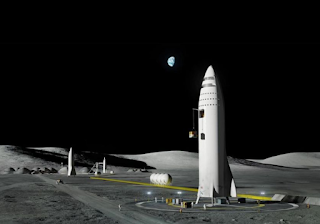Prolonged Training Period
I approached this review of their work from the point of view of a business continuity planner, as a person who has had to consider the consequences of working daily in very extreme and or hazardous conditions, and as an individual who has also worked on technologically advanced systems.
Having read the 88 page report I generally found this to be a well researched and thought out plan. The proposed timelines appear to be quite generous and the progression seems to follow, for the most part, a sound developmental methodology.
Applying the review criteria mentioned above I do, however, have some concerns with their material as it is generally an acceptable skeletal outline but often misses the mark by not considering the ramifications of their choices.
1 - Psychologist Hermann Ebbinghaus discovered in the 1880s that forgetting new knowledge is quite immediate and accelerates over a short period of time. In his research Ebbinghaus discovered what he called the forgetting curve which was a measure of how much we forget over time. In his experiments, Ebbinghaus discovered that without any reinforcement or connections to prior knowledge, information is quickly forgotten, roughly 56 percent in one hour, 66 percent after a day, and 75 percent after six days[1].
In another article published in the journal Neuron, neurobiologists Blake Richards and Paul Frankland challenge the predominant view of memory and indicated that the goal of memory is not just to store information accurately but to “optimize decision-making” in chaotic, quickly changing environments. They believe that forgetting is an evolutionary strategy, a purposeful process that runs in the background of memory, evaluating and discarding information that doesn’t promote the survival of the species.
A prolonged training period of up to 13 years could easily see the students (astronauts) forgetting all but the basic necessities of how to make something work.
[1] https://www.edutopia.org/article/why-students-forget-and-what-you-can-do-about-it

Comments
Post a Comment